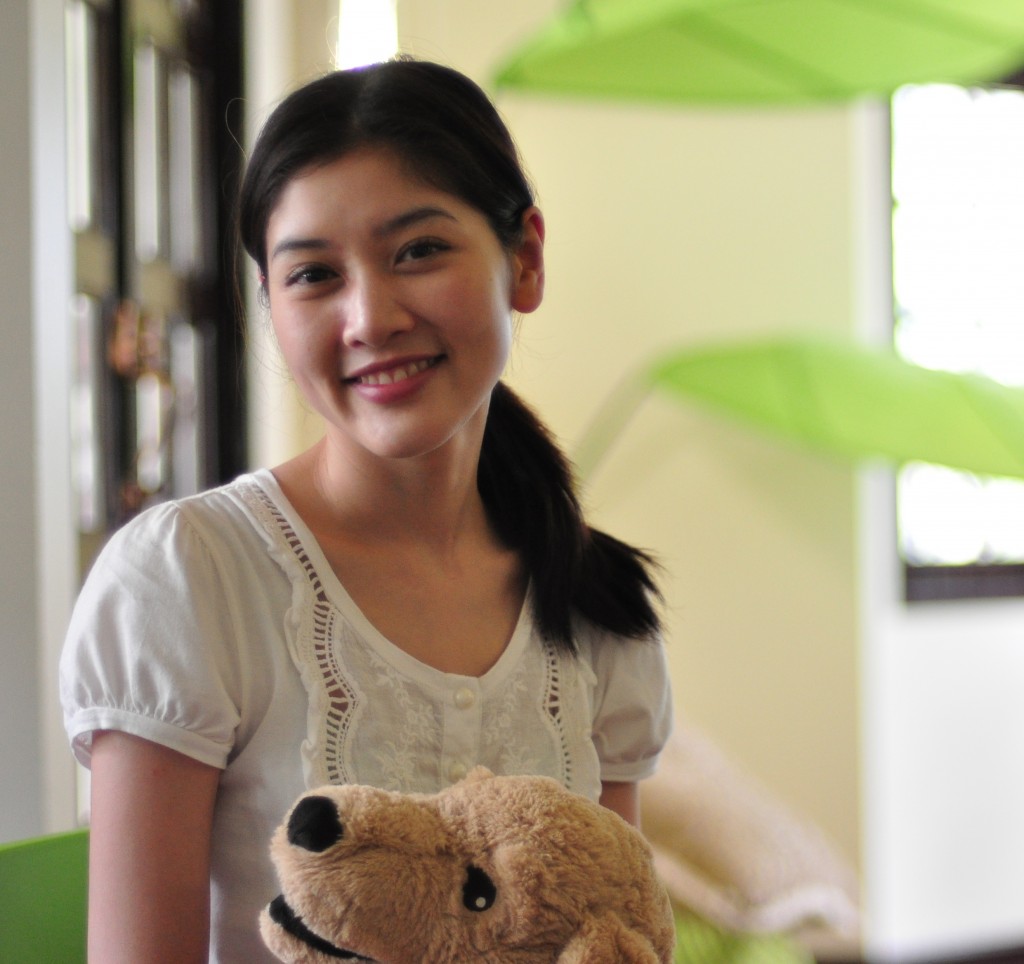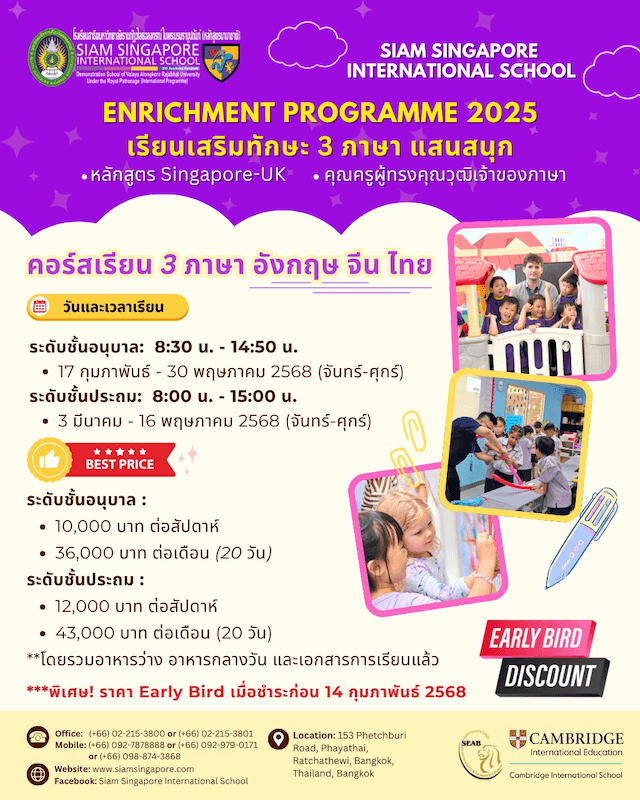Your Name: Kwan Hansongkitpong
Job Title: Clinical Psychologist, Autism Rights Advocate, and Educator
What is your nationality and background?
I’m Thai, born and raised. At 14, my parents sent me to an all-girls boarding school in the US and that pretty much changed the course of my life. I see myself as a third-culture ‘kid’.
What is your profession?
I’m a clinical psychologist, an autism rights advocate, and an educator. I work as a clinical psychologist serving as a Clinical Director at Little Sprouts Children’s Centre and a consulting psychologist at the FAI-FAH, a youth community program run by TMB Foundation. I’m also founder of Autism Awareness Thailand and one of the Directors at the Rainbow Room Foundation.
What are the key skills and responsibilities of these roles?
I hold a lot of different roles in different organizations but what I do mainly pertain to working with children, their families, and schools, to help them reach their developmental targets. A portion of my responsibilities involve working with schools and communities on awareness raising and advocacy issues.
How did you get involved in your profession?
Ever since high school, I knew I wanted to work with children. Through exploration, I found psychology and fell in love with it. I didn’t become passionate about autism and other developmental conditions until I was a junior in college at Carnegie Mellon University in Pittsburgh, PA, USA, however. I learned about autism while working as a research assistant in a preschool research lab at my university. We had a few studies on autism going on at the time and I was fortunate enough to be able to help out with one of them. The more I learned about autism, the more interested I became, and so I decided to focus my post graduate studies on autism and other developmental disorders. I also volunteered and worked during graduate school, which opened my horizon in the field.
After receiving my doctorate in Clinical Psychology, I began my post-doctoral training at Children’s Hospital and Research Center in Oakland, California. I stayed there and worked for a few more years after completing my postdoc. Then, I decided it was time to come back to my motherland. I did, however, take a year ‘off’ before coming back to do a second masters degree in ‘Mind Brain and Education’ at Harvard Graduate School of Education as I felt it would equip me with skills to maximize my capacity to help children with special needs, families, and schools in Thailand.
How does your role enhance the wellbeing or experience of children?
What I do ranges from developmental assessment to intervention to parent and school consultation to awareness raising and advocacy. While I see my main role as a psychologist as directly supporting the children with special needs and their families in their development and helping them reach their full potential, my professional goal isn’t only to help the children I work with lead better lives. I also see that it is my responsibility to influence society to grow more collaboratively and collectively to become more comfortably diverse and inclusive as a whole.
In an inclusive society, typically developing children can gain social emotional and cognitive skills that they would not have otherwise without having a peer with special needs in the classroom. Schools learn to become more accommodating, adaptive, and flexible. Society begins to see each individual as unique and “equal” in their own rights regardless of their abilities or disabilities.
What challenges do your face in this role?
Each job has its own challenges which only makes the job more interesting. Working with families and schools in addressing a single child’s unique needs is not always an easy task as families and schools also have other priorities and expectations to fulfil. With the best interests of the child in mind, this might sometimes mean that I have to challenge decisions made by the school or the family which may be hard for them to digest. The good thing about my job is that it doesn’t end when I tell them that the strategies they are using are not really working. As part of my job, I also work with schools and families to help them find better tools and strategies to support the child in their setting. This allows both schools and families to maintain their priorities and give the appropriate attention to their other typically developing children while still addressing the needs of the child with special needs.
What do you hope to achieve within your industry?
I want to inspire schools and families to accept and accommodate to differences. I want inclusion to become the norm. In my opinion, the best schools are inclusive schools. Why? Because in order to have an inclusive classroom, you need to have a teacher who truly understands children, is flexible and innovative, doesn’t easily give up on children, values diversity and collaborative community, and has the heart for it. In inclusive settings, with role models as such, children also develop stronger emotional intelligence, learn to become adaptive, flexible, and patient.
That is why Little Sprouts Children’s Centre is piloting our inclusive daycare and preschool program for children of all abilities this summer. I strongly believe that inclusion and diversity can greatly benefit children’s development cognitively and socially and hopefully the impact will rub off on their parents, families and society eventually.
Who or what inspires you?
Professor Thomas Hehir at Harvard Graduate School of Education who served as director of the U.S. Department of Education’s Office of Special Education Programs from 1993 to 1999 under the Clinton’s administration. He was responsible for implementing the Individuals with Disabilities Education Act (IDEA) and for its reauthorisation in 1997. He’s not only a great educator but an active advocate for special education reform and children with disabilities in the school system.
Only a Bangkok local would know…
Every other month at the Rainbow Room Foundation, there is a workshop called “Autism Demystification”. Children 7 years and up are welcome to join. Adults are welcome too! You’ll get to experience what it might feel like to have autism and learn a bit about how to make the world a more welcoming place for people with autism. Better yet, it’s FREE! Of course, donations are always welcome.
Register your email address here and we’ll notify you when a new article gets uploaded.















